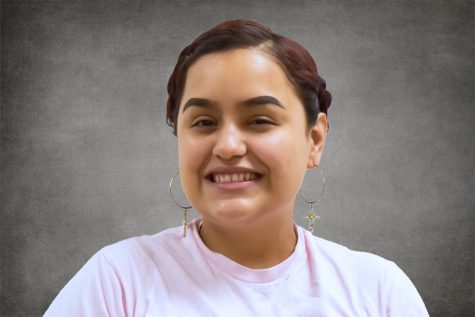Counseling helps mental health stability
May 1, 2019
Imagine the type of problems a person can have. People get overwhelmed with school, work, traumas and some even have children.
“Our students bring us whatever their experiences are,” Elizabeth Bremmer, Contra Costa College Wellness Program coordinator, said.
The Wellness Program’s services are available to help students with any type of counseling.
“We do personal, educational (also known as advising) and career counseling,” wellness counselor Jessica Lopez said.
Counselors are available to help students maintain stable mental health. But what is mental health, and how do individuals cope with with it?
According to Mentalhealth.gov, mental health is the well being of one’s social, emotional and psychological self. It incorporates all aspects of a person’s life, including relationships, and the everyday decisions people make.
People’s mental health is affected differently based on the experiences of each individual. Therefore everyone’s way of coping with problems is different.
Everybody is different, and everyone deals with things differently. There is no cookie cutter approach to go about helping people.
Student Shaymaa Housheya said, “Some people deal with things on their own. And it works for them. However for others it doesn’t help to just deal with it themselves. Others need to talk.
“That’s what counseling is about, to talk to someone who will listen to you about your problems and help you assess the situation in order to come up with something that will help you better yourself,” Housheya said.
Unfortunately, many people have the misconception that speaking to a counselor for the sake of a healthy mental health is due to having a psychological problem, and they refuse to get the help they need fearing that if they do go get that help they may be seen as someone who is psychologically challenged.
While this stigma may be true for some people, speaking with a counselor can be essential for people who need help and direction.
Lopez said, “With personal counseling, that’s when we talk about how students are doing in their lives ands up to, and their classes? Based on how the students answer the questions that will lead to the deeper discussion.
“Counseling is about being observant and listening and repeating back to the individual what they are telling me. This lets them see that I understand them and sometimes this leads to more things coming out, to a point where the individual feels vulnerable and understands they need our help.”
Some students have the notion that because CCC is a public college, counseling may not be as professional or confidential as at a hospital or another facility.
Second-year student Luis Guzman said, “I would go to counseling if I thought I needed it. Ideally I would go there for anything like stress or anxiety. If I needed help with something deeper than that I would probably go somewhere I would feel is more confidential.”
Contrary to that, however, it’s important to know is that Wellness Program counseling is 100 percent confidential. Counselors assure students that nothing leaves the room as everything stays confidential between the counselor and the student.
The only way a counselor would break this confidentiality would be if the student says they have intentions of physically hurting themselves or others.
Something important that many students don’t know is that their medical insurance covers mental health issues.
Most insurance cards include a number which people can call and ask for an advice nurse. With an advice nurse they can tell them how they are feeling.
And if they are having symptoms of some sort of issue they will diagnose the caller and help by phone with physical or mental health concerns.
Any student who would like to contact Wellness Program counselors can email them at [email protected] or call them at 510-215-3960 for any additional information.



